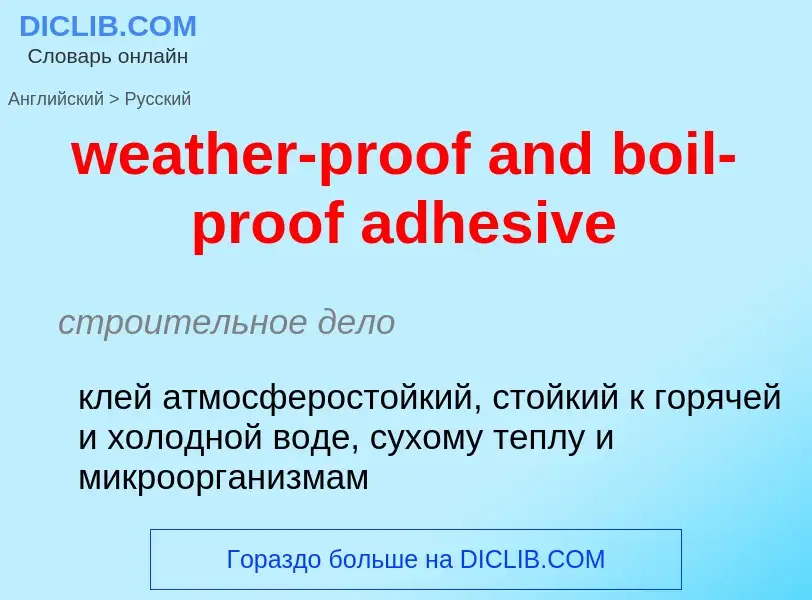Traducción y análisis de palabras por inteligencia artificial ChatGPT
En esta página puede obtener un análisis detallado de una palabra o frase, producido utilizando la mejor tecnología de inteligencia artificial hasta la fecha:
- cómo se usa la palabra
- frecuencia de uso
- se utiliza con más frecuencia en el habla oral o escrita
- opciones de traducción
- ejemplos de uso (varias frases con traducción)
- etimología
weather-proof and boil-proof adhesive - traducción al ruso
строительное дело
клей атмосферостойкий, стойкий к горячей и холодной воде, сухому теплу и микроорганизмам
математика
математическое доказательство
Definición
Wikipedia
.jpg?width=120)
Proof coinage refers to special early samples of a coin issue, historically made for checking the dies (as in demonstrating that something is true) and for archival purposes. Nowadays proofs are often struck in greater numbers specially for coin collectors (numismatists). Nearly all countries have issued proof coinage.
Preparation of a proof striking usually involved polishing of the dies. They can usually be distinguished from normal circulation coins by their sharper rims and design, as well as much smoother "fields" – the blank areas not part of the coin's design.
The dies for making modern proof coins are often treated with chemicals to make certain parts of the design take on a frosted appearance, with the polished fields taking on a mirror finish. Several other methods have been used in the past to achieve this effect, including sand blasting the dies, and matte proofs. Proof coins of the early 19th century even appear to be scratched, but it was part of the production process. The term "proof" refers to the process by which the coins are made and not to the condition of the coin. Certification agencies can grade and assign numerical ratings for proof coins. A PR70 coin is the highest grade possible for a proof coin and indicates a perfect example, with PR69 and lower grades reflecting some deficiency in the strike, centering, details, or other aspect of the coin.
Most proof coins are double struck under higher pressure. This does not normally result in doubling that is readily observable, but does result in the devices being struck fully, resulting in intricate elements of the original die being present on the proof that may not be present in such detail on circulation strikes. After being struck, they are separately and individually handled, in contrast to normal coins which are thrown into bins.

.jpg?width=200)

![A 1969 [[United States Mint]] Proof set of 5 coins including 40% silver [[Kennedy half dollar]] A 1969 [[United States Mint]] Proof set of 5 coins including 40% silver [[Kennedy half dollar]]](https://commons.wikimedia.org/wiki/Special:FilePath/A 1969 United States Mint Proof Set.jpg?width=200)
![Libertad]] coin of Mexico Libertad]] coin of Mexico](https://commons.wikimedia.org/wiki/Special:FilePath/Reverse of the 2010 1⁄10 Onza (ounce) silver proof Libertad coin of Mexico, photographed by Yogabrata Chakraborty.jpg?width=200)

![Visual proof for the (3,4,5) triangle as in the [[Zhoubi Suanjing]] 500–200 BCE. Visual proof for the (3,4,5) triangle as in the [[Zhoubi Suanjing]] 500–200 BCE.](https://commons.wikimedia.org/wiki/Special:FilePath/Chinese pythagoras.jpg?width=200)


